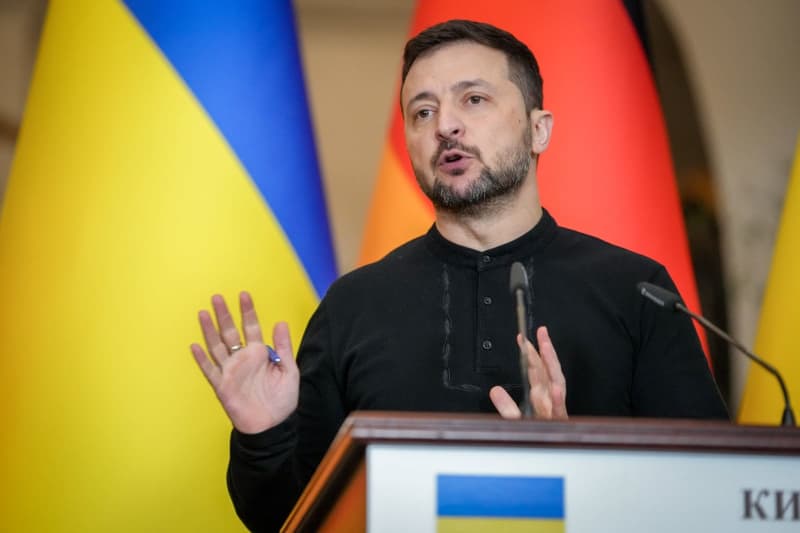In a recent address, Ukrainian President Volodymyr Zelensky revealed that the Russian military is increasingly deploying North Korean soldiers to bolster their operations near the Ukrainian border, specifically in the Kursk region. This development indicates a significant escalation in the conflict, with Zelensky noting a substantial loss of lives among these North Korean forces, although exact numbers were not disclosed. He emphasized that Russian President Vladimir Putin appears to be intensifying the war effort despite international calls for de-escalation from countries like China and Brazil. The integration of North Korean troops into Russian military units highlights the desperate measures being undertaken by Moscow amidst continued setbacks on the battlefield.
Reports of North Korean soldiers being sent to aid Russian forces first surfaced in October, and by early November, their involvement in combat scenarios was confirmed. Zelensky’s remarks suggest that the presence of these troops is not limited to the Kursk area but may soon extend to other fronts, escalating the potential for conflict across multiple regions. The alarming increase in foreign military personnel within Russian ranks underscores the dire straits Moscow finds itself in, as it seeks new avenues to bolster its military capabilities in Ukraine amid ongoing challenges.
The situation remains dire on the ground, particularly in Ukraine’s southern Kherson region, which faced renewed Russian shelling that resulted in casualties and injuries. Kherson Governor Oleksandr Prokudin reported that residential areas were significantly damaged during the attacks, highlighting the intense suffering inflicted upon the local population. As winter approaches, Russian forces have strategically targeted critical infrastructure, including electricity and heating systems, aiming to undermine civilian morale and exacerbate humanitarian hardships for the Ukrainian people.
Despite these aggressive tactics, Ukraine is also facing territorial losses along the extensive 1,000-kilometer front line, a troubling sign of the strain on its military resources as the war drags into its third year. Military analysts suggest that the prolonged conflict has stretched Ukrainian forces thin, impacting their ability to sustain defensive operations while simultaneously executing counter-offensives. In contrast, Russia justifies its heavy artillery strikes as retaliatory measures against what it perceives as Western-backed provocations from Kyiv, further complicating the conflict narrative.
Adding to the tensions, former Russian president Dmitry Medvedev hinted at the possibility of further territorial expansions within Ukraine. During a recent party congress of the ruling United Russia party, Medvedev spoke of the need to develop the regions of Donetsk, Luhansk, Zaporizhia, and Kherson, which Russia has partially occupied. His remarks suggested an ambition for additional territorial claims, illustrating the Kremlin’s ongoing strategy to assert control over contested areas while threatening to annex further regions unless Ukraine acquiesces to Moscow’s demands. The situation underscores the complexities of negotiations, where Russia’s insistence on territorial concessions remains a significant hurdle to any potential peace talks.
Overall, the integration of North Korean soldiers into Russian military operations, aggressive Russian attacks on civilian infrastructure, territorial losses for Ukraine, and Medvedev’s provocative statements serve as grim indicators of the war’s trajectory. As the conflict persists with no clear resolution in sight, the humanitarian crisis continues to deepen, and the regional stability hangs precariously in the balance. The international community remains watchful, with calls for de-escalation being ignored by the Russian government, raising concerns about the future of Ukraine’s sovereignty and the broader implications for regional security.

